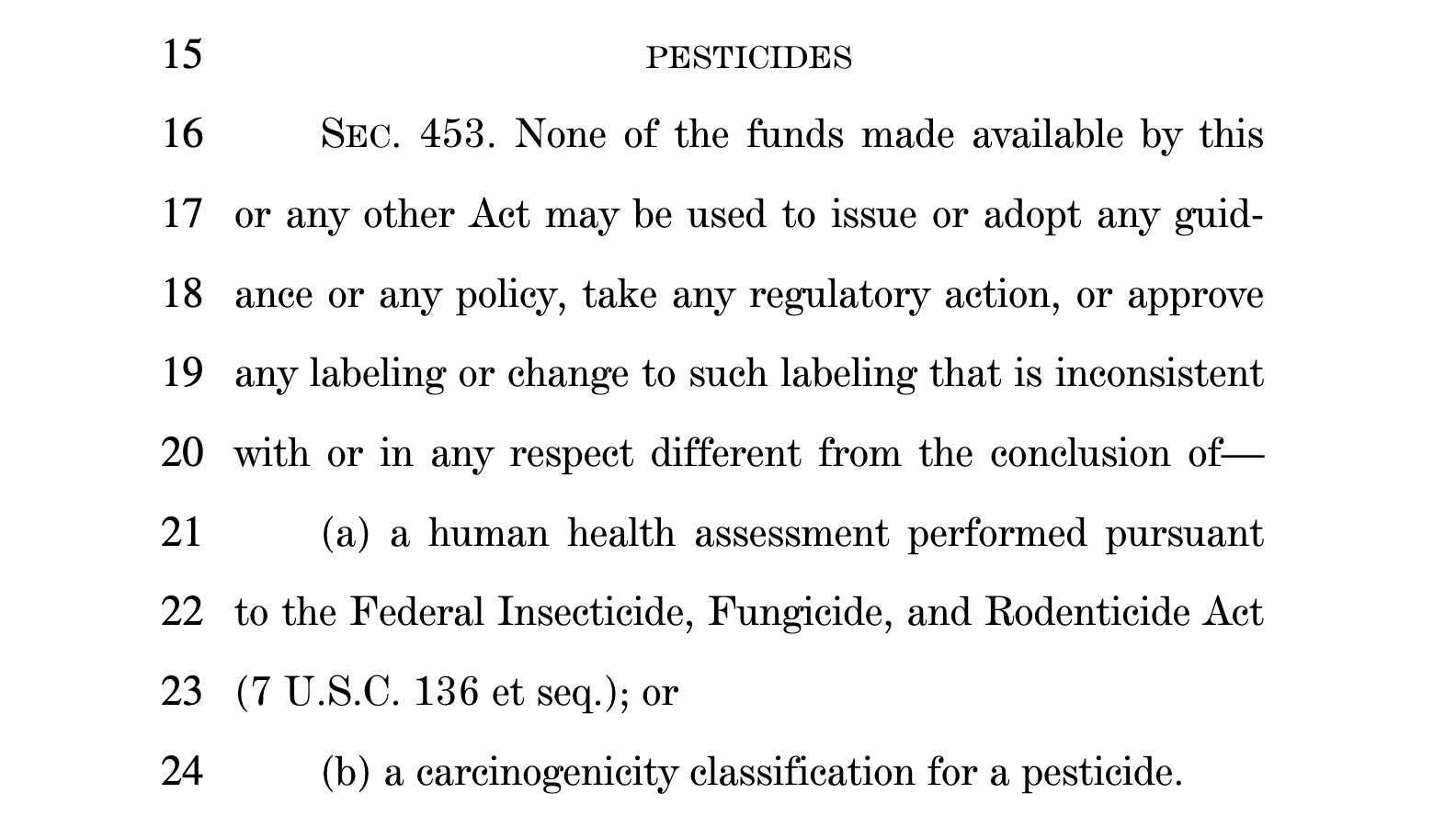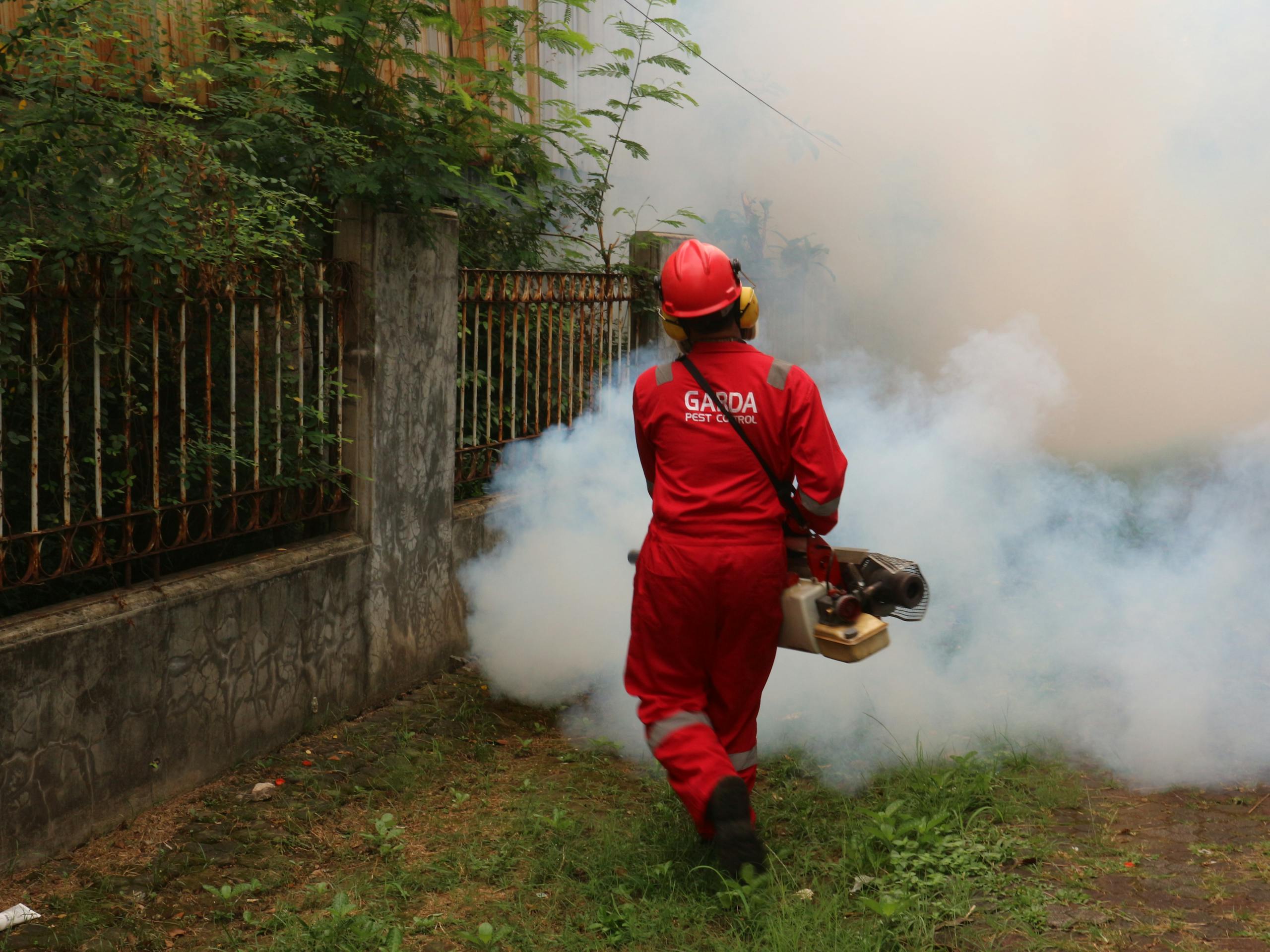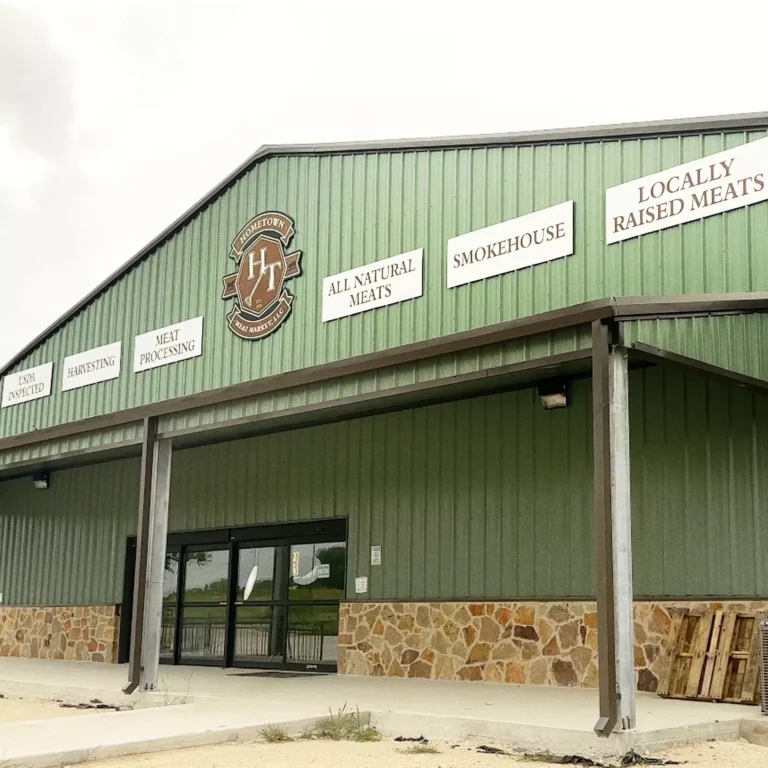Please read Dr. Nass’s detailed post here.
On July 22, 2025 the House Interior Appropriations Committee marked up and offered amendments on the current interior appropriations bill, which includes the infamous “Section 453,” a rider that effectively gives pesticide and chemical producers a liability shield.
This shield is constructed by preventing states and the federal government from requiring updated warning labels. It rests on the legal doctrine called “failure to warn.”
The complete bill draft at the house website.
This is the complete text of Section 453 from the link above:

Near the end of the day, Representative Pingree from Maine proposed an amendment that would strike Sec. 453, effectively leaving the laws on this topic as they have stood for years. The discussion was 20 minutes long. It can be viewed on the live stream at Youtube starting at minute 3:23:04.








